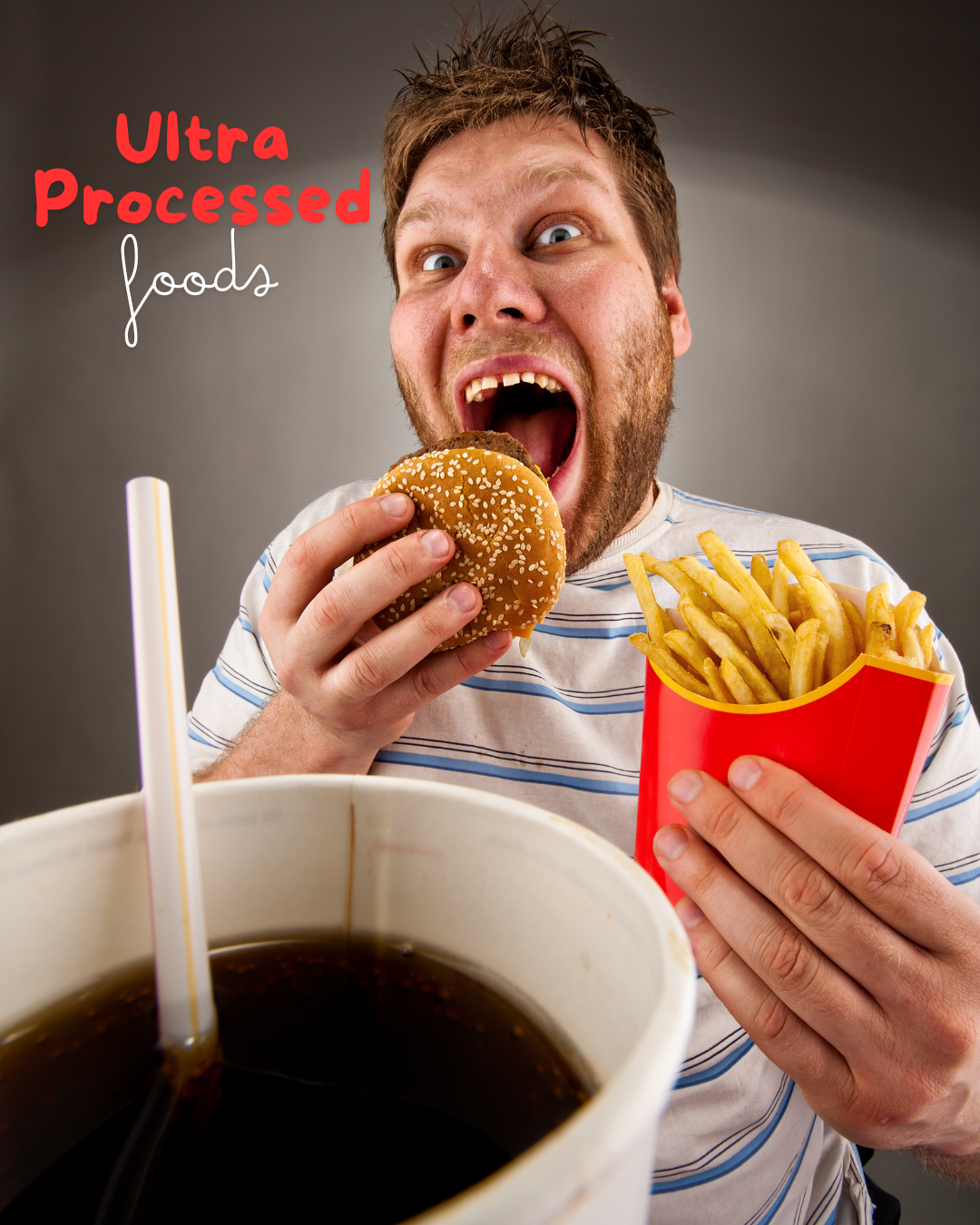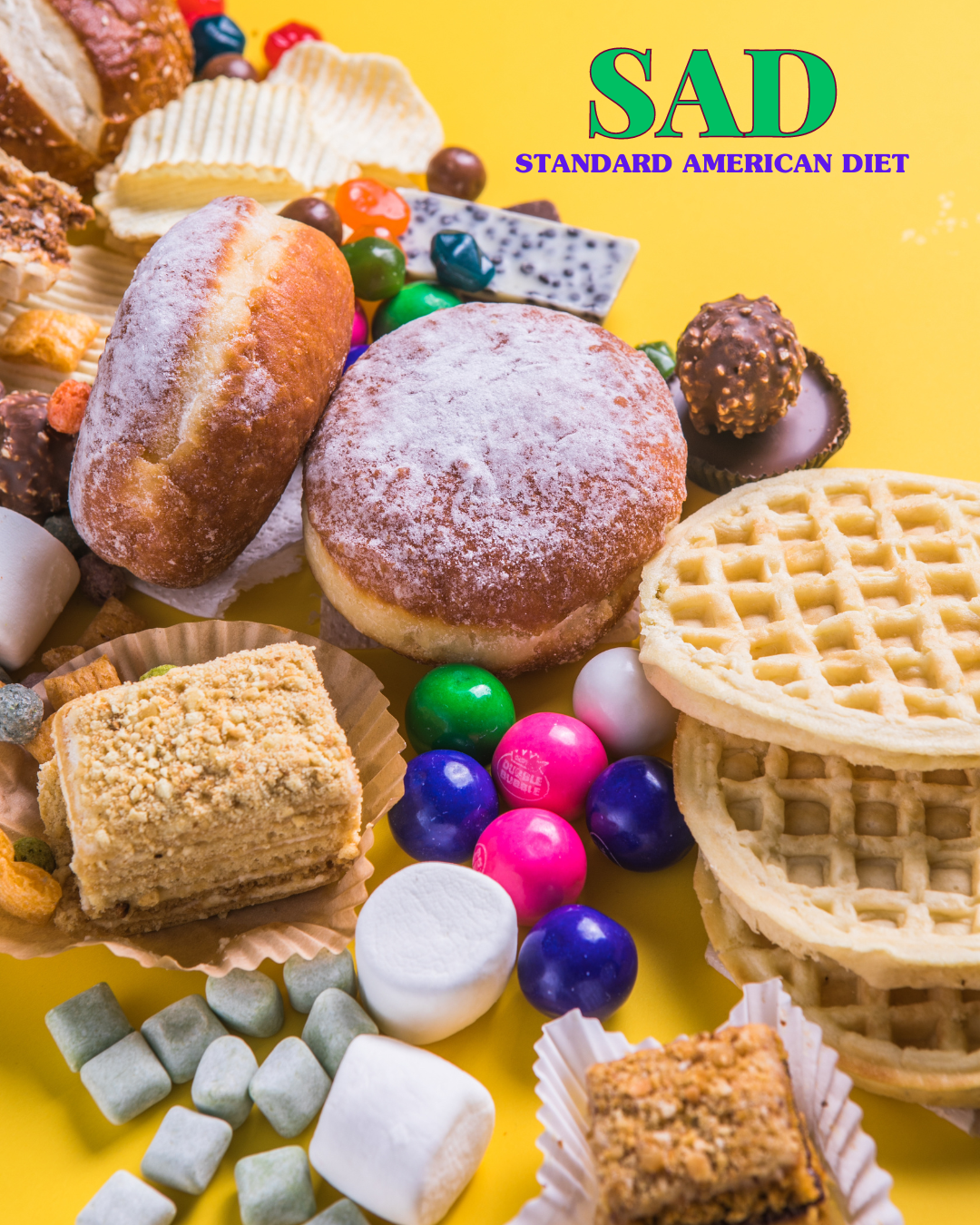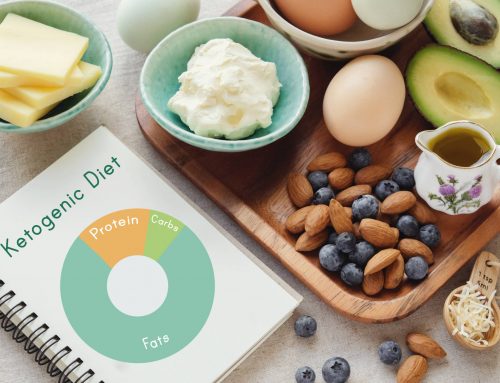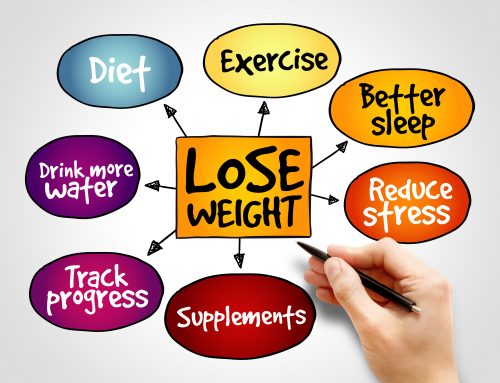Let’s talk about ultra-processed foods, which are basically everywhere! You know, those snacks and meals that last longer on the shelf than any food naturally should? Yeah, they might be super convenient (hello, dinner ready in five minutes!), but they’re also super not great for you. Did you know that the percentage of energy derived from ultra-processed foods in the USA is 58%? As a comparison, Australia 42%, Italy was 10%, South Korea 25%, Colombia 16% and Mexico 30%.
What are Ultra-processed Foods?
Imagine food that’s been through more stages than a rock star on a world tour. That’s ultra-processed food for you. These are things like chips, soda, and frozen pizzas that are so far from their original ingredients, they might as well be from another planet.
Ingredients Commonly Found in Ultra-processed Foods
Reading the ingredient list on these foods can feel like a science experiment. High fructose corn syrup? Check. Something unpronounceable that ends in ‘-ite’ or ‘-ate’? Double-check. These ingredients are great for keeping foods edible for eons, but not so great for your body.
Health Impacts of Ultra-processed Foods
Eating a lot of these foods is like giving your health a one-way ticket to chronic illness. They’re usually packed with sugar, bad fats, and a ton of salt but forget about things like fiber or actual nutrients.
Obesity and Metabolic Syndrome
These foods are so tasty, they trick your brain into eating more and more. Next thing you know, your jeans are too tight, and you’re at risk for things like heart disease. Thanks, chips and soda!
Heart Disease and Stroke
If your diet is full of these processed wonders, your heart might be getting a tougher workout than it signed up for. All that extra fat and salt can lead to clogged arteries, which is as bad for your blood flow as a traffic jam is for your morning commute.


Diabetes and Insulin Resistance
Ultra-processed foods love to mess with your blood sugar levels. They spike them up high and then drop them faster than a hot potato. Do this often enough, and your body might just forget how to handle sugar properly at all.
Other Health Risks
Oh, and it’s not just your heart and sugar levels at risk. These foods can also invite diseases like cancer to the party. Plus, they do a number on your gut health, which is a big deal if you actually like feeling good.
Psychological Effects of Ultra-processed Foods
It’s not all in your head—well, actually, it kind of is. These foods can mess with your mood and even get you hooked on them. Who knew that snack foods could be so clingy?
The Impact of Ultra-processed Foods on Children: Health and Behavior
When it comes to our kids, ultraprocessed foods can be particularly sneaky villains. Sure, those colorful, fun-shaped snacks might win over the young crowd in the short term, but their long-term effects are far less charming. These foods are often high in sugars, fats, and salts but low in the nutrients children need to grow healthy and strong. This imbalance can lead to childhood obesity, which is troubling enough, but there’s more. Studies suggest that diets high in processed foods can also affect a child’s behavior, leading to increased hyperactivity and difficulty concentrating in school. The lack of essential nutrients like omega-3 fatty acids, iron, and B vitamins can affect cognitive development and emotional regulation. So, while the convenience of packaged meals and snacks is tempting, the real cost might be much higher than we realize, impacting not just the body but also the developing mind.
Addiction and Overeating
Ever noticed how you can’t have just one chip or one bite of ice cream? That’s no accident. Ultraprocessed foods are designed to make you want more and more. They’re the food equivalent of binge-watching your favorite TV show.
The Economic and Social Impact
All these health problems are really expensive, not just for you but for everyone. Medical bills go up, and so do health insurance costs. Plus, let’s not forget how making these foods hurts the planet—talk about a lose-lose situation.
Healthcare Costs
With more people getting sick from these foods, we’re all paying more to keep everyone healthy. Imagine your allowance, but instead of going to cool stuff, it goes to paying off someone’s heart surgery.
Environmental Impact
Producing ultra-processed foods uses up a lot of resources and creates a ton of trash. It’s kind of like if every time you cooked something, you threw out half the ingredients. Not cool, right?
Alternatives to Ultra-processed Foods
There’s a crazy idea: eating real food! Foods that actually look like they came from the earth and not a factory are not only better for you but also taste way better once you get used to them.


Whole Foods and Home Cooking
Getting back to basics with fruits, veggies, and other whole foods means your body gets what it needs to keep you feeling awesome. Plus, cooking at home can be fun— it’s like being on your own cooking show but without the scary judges.
Reading Labels and Making Informed Choices
Start reading labels like you’re a detective in a mystery novel. The fewer ingredients you need a chemistry degree to understand, the better. If sugar’s one of the top three ingredients, put that thing back on the shelf!
FAQs
- What exactly qualifies a food as ‘ultraprocessed’? Ultraprocessed foods are typically made from substances extracted from foods, such as oils, fats, sugar, starch, and proteins, and often contain little or no intact groups of original foods.
- How do ultraprocessed foods affect children differently than adults? Children are particularly susceptible to the addictive qualities of ultraprocessed foods, which can lead to lifelong eating disorders and chronic health issues.
- What are some simple first steps to reduce ultraprocessed food in my diet? Start by cooking more meals at home using whole, fresh ingredients and gradually eliminate snacks and beverages that are high in sugar and additives.
- Can eating ultraprocessed foods affect my mental health? Yes, the high sugar and poor nutrient content in ultraprocessed foods can exacerbate symptoms of depression and anxiety and can affect overall cognitive function.
- Are there any ultraprocessed foods that are considered ‘safe’ in moderation? While moderation is key, it’s essential to understand that even in small amounts, ultraprocessed foods can contribute to unhealthy eating habits and should be limited.









Leave A Comment